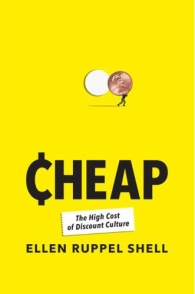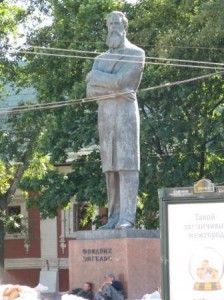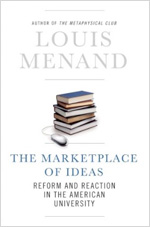As per usual when winter break hits week three, my phone is ringing off the hook* from students asking me for my reading suggestions. So, here you go:
Charlie Calomiris and Steven Haber in Foreign Affairs, “Why Banking Systems Succeed — And Fail.” It’s worth it for this gem alone:
As George Bernard Shaw wrote, “The reasonable man adapts himself to the world: the unreasonable one persists in trying to adapt the world to himself. Therefore all progress depends on the unreasonable man.” Meaningful banking reform in a democracy depends on informed and stubborn unreasonableness.
Mike Veseth “Deconstructing and Disentangling the Disintermediation of the Wine Business.” Professor Finkler turned me on to this nice piece on cutting out the middleman from The Wine Economist himself. I should really read Wine Wars, which looks rather fascinating. My grossly under-informed musings on the coming “wine shortage” here.
I just received William Nordhaus’ The Climate Casino: Risk, Uncertainty, and Economics for a Warming World in the mail and it seems like I should take a look at (though the audience seems to be the informed general audience rather than for academic economists). It seems probable that I will adopt chunks of this for ECON 280 this Spring. Nordhaus is the incoming president of the American Economics Association (!), so he has plenty of street cred among economics types. Among the environmental crowd he is famous for his DICE and RICE models, and is certainly one of the most influential economists working on matters of thinking about global climate change. Paul Krugman was Nordhaus’ RA back in the day! There is a high probability that I will offer this as a reading group option next term.
Speaking of Reading Groups, don’t sleep on The Great Leap Forward: 1930s Depression and US Economic Growth, the principal source material for this year’s Senior Experience read.
And, last for this installment, I finally started making my way through Science Mart: Privatizing American Science. Wow, this is an experience. If this looks good to you, let me know and we can talk.
*Well, maybe not “off the hook,” but I did get one email.

 I recently picked up again one of my favorite books, How to be an Alien by
I recently picked up again one of my favorite books, How to be an Alien by 


 Looking to pick up some reading recommendations for the upcoming Reading Period? My pick is Tyler Cowen’s e-book,
Looking to pick up some reading recommendations for the upcoming Reading Period? My pick is Tyler Cowen’s e-book, 

 For those of you interested in an extra unit or two, next term we are offering an independent study / tutorial reading Joseph Schumpeter’s classic, Capitalism, Socialism, and Democracy. For those of you unfamiliar with the book,
For those of you interested in an extra unit or two, next term we are offering an independent study / tutorial reading Joseph Schumpeter’s classic, Capitalism, Socialism, and Democracy. For those of you unfamiliar with the book,  It’s the middle of the summer, and it’s time to check in
It’s the middle of the summer, and it’s time to check in 
 The second book is The Marketplace of Ideas: Reform and Reaction in the American University by Louis Menand. This is a provocative piece about why although academics tend to be liberal as a bunch, but institutional change within the academy is slow going.
The second book is The Marketplace of Ideas: Reform and Reaction in the American University by Louis Menand. This is a provocative piece about why although academics tend to be liberal as a bunch, but institutional change within the academy is slow going. Before I catalog my notes on the last section of the book, The Sage, I’d like to simply point out some excellent resources that have helped me to put Schumpeter’s work in context. Indeed, that is one of the main challenges for economists today, I think, is what was genuinely important about Schumpeter’s work and what wasn’t.
Before I catalog my notes on the last section of the book, The Sage, I’d like to simply point out some excellent resources that have helped me to put Schumpeter’s work in context. Indeed, that is one of the main challenges for economists today, I think, is what was genuinely important about Schumpeter’s work and what wasn’t.